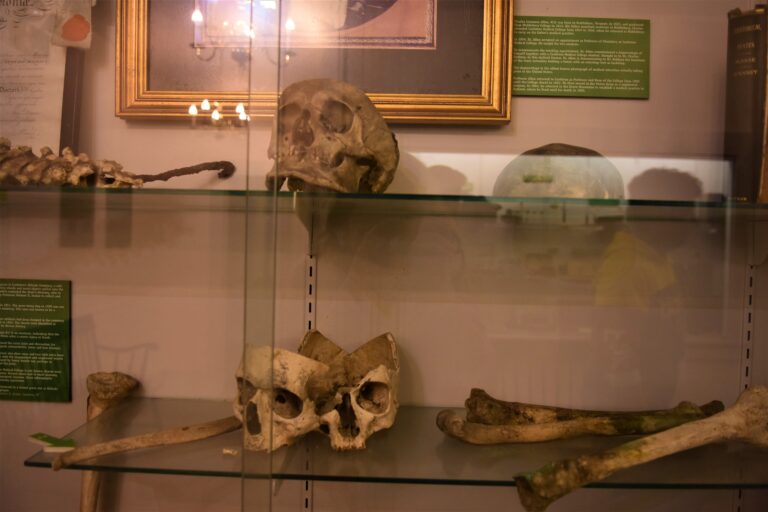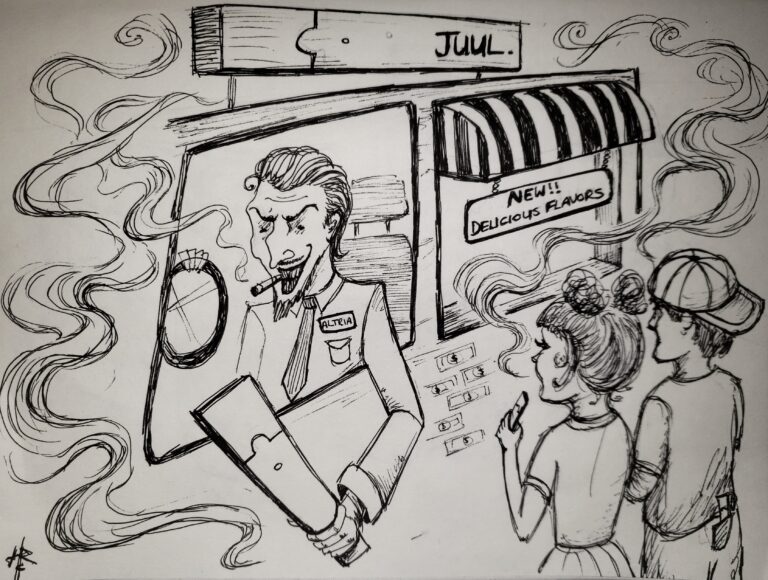Castleton alum wins national journalism award

Castleton University alumnus Darren Perron has recently been awarded the Radio Television Digital News Association National Edward R. Murrow Award for “Best News Series.”
His story was about soldiers across seas battling against long-term medical need due to open air burn pits in Afghanistan.
Perron has received 11 regional Murrow Awards for some of his other stories, but this is his first time earning a national award. The award is named after Edward R. Murrow, an American broadcast journalist and war correspondent who some consider to be the forefather of journalism.
“The Murrow Award is one of the most prestigious awards in journalism. It really sort of looks at the stories where reporters dive deeper into a subject, being thoughtful, in-depth reporting,” Perron said.
The story was also nominated for an Emmy. Perron and Lance McKenzie, his photographer, traveled down to New York City to accept the award while being “surrounded by the best in the industry, the folks you see in the night during evening and morning shows,” he said. But the award for Perron means a lot more than just the title.
“Really, we didn’t set out for this, it was a sort of wonderful by product of the work that we did. My photographer Lance McKenzie and I talked to families who have lost loved ones or soldiers who are currently sick from these burn pits in war zones. We knew that we had a huge problem here and that’s why we tackled the subject,” Perron said.
Perron said the awards they received are amazing bonuses and highly appreciated, but that they needed to tell this story because thousands of soldiers are dying and the cost is too much for families to bare.
The investigation revealed that thousands of troops breathed in smoke from open-air burn pits in the middle of war zones. In those pits, everything was burned: tires, medical waste, human waste, metals, trash. It uncovered how many Vermonters got sick, and in some cases, died.
“We actually had traveled to Afghanistan in 2010. We saw these burn pits when we were there, but like everyone else who was in the war zone, that’s sort of an afterthought because you’re really concerned about survival when you’re in a war zone,” Perron said.
While Perron and McKenzie were in Afghanistan, they followed around several men, one of whom died due to the exposure of open pits. His wife was advocating for change. While they were there, they tried to understand the effects of the pits on the soldiers.
“Everything was burned in these pits; human waste, medical waste, tires, body parts, I mean you name it. Everything was thrown into these pits because there is no infrastructure in place in the middle of makeshift villages. So they burnt everything but what it did was produce black smoke that these soldiers breathed in and out day after day. Now it seems there is a pretty solid link to these pits making them sick,” Perron said.
The pits have been referred to as the modern day ‘agent orange,’ a tactical herbicide used by the U.S. military from 1962 to 1975 that infected countless veterans and devastated 11,969 miles of forest.
Traveling across seas to spend time with these soldiers was more than just writing another article or trying to explain what you see. As Perron says, this trip was a life-changing experience in ways he had never planned for.
“When you’re in the war zone with someone it’s a frightening, fascinating, educational, and emotional experience for anyone, particularly for you know someone like myself and my photographer. We’re not trained to be marching on the front lines of war with these folks and so it was an incredible experience,” Perron said.
When Perron and McKenzie left Afghanistan, after reporting week to week about what they were enduring and what the soldiers were enduring, they knew this story was going to impact soldiers and their families. As a result, you have an understanding of our men and women who are serving much more so after an experience like that, Perron says.
Thanks to Perron and McKenzie’s actions, a push to change this has started.
“There is a new law in Vermont which is requiring that any person who has served in a war zone be notified of the burn pit registry, which is now in place to start documenting any potential illnesses that were caused by this as the government and the VA are looking into a direct link,” Perron said.
Perron speaks happily knowing that there is a law in place for Vermont that can be attributed to the work that he and McKenzie did on the subject. He states that he has seen doctor’s now reaching out to their patients who they knew had gone to war and have had to start screening them for potential illnesses that could be linked to the pits.
Even in Congress, there is a talk towards trying to fix this.
Perron knows that there is a push by U.S. Rep. Peter Welch to “get burn pits listed as a disability which would then give anyone who is sick from these burn pits support by the government.” As of right now there isn’t something like this that does exist but there is a push for it in Washington.
After this story was presented to the nation, Perron hoped it would be enough to spark change.
“That’s why we do this, right?” said Perron. “I mean that I think that any of us [journalists] who get involved in this career hope to bring about change and shine a light on problems and hold people accountable.”
Perron explains that it is a job that he feels he is very privileged to do because some days you are welcomed into the most triumphant times in their lives and sometimes at their most tragic time in their lives.
Perron explains that he did his best on this article and he hopes that something will come from it.
“You have to take that responsibility seriously and your job is to tell their stories and do it in the most accurate, fair way that represents their story well,” Perron said.







